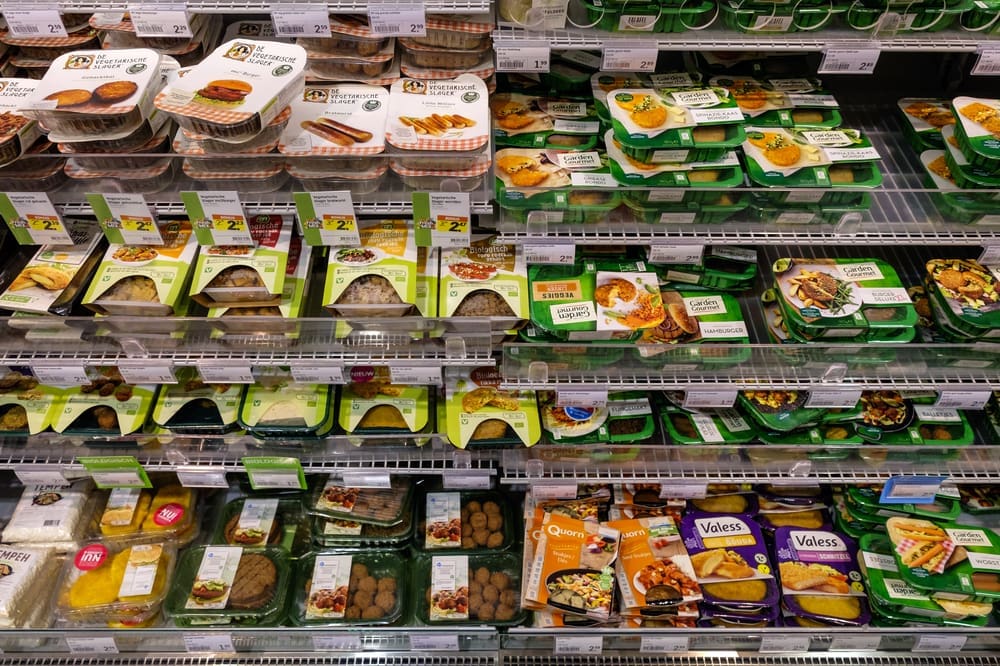AS THE Government looks to refine its legislation covering environmental claims made by companies, the red meat industry’s peak representative body has been calling for a specific focus on alternative protein companies.
A Senate committee has been investigating the options for updating “greenwashing” legislation since March last year. Earlier this week, it raised some concerns about the country’s main carbon neutral certification body.
A written submission made by Red Meat Advisory Council called for a specific focus on alternative protein companies looking to market themselves as a more environmentally friendly option to meat.
“If the Australian Competition and Consumer Commission (ACCC) was serious about scrutinising organisations that overstate or mislead consumers about their environmental credentials, the fake meat sector should be high on their target list,” the RMAC said.
“The alternative protein industries generally do not provide any transparent or verifiable data that can reliably demonstrate their environmental or sustainability credentials in an Australian context, including factors such as: land clearing for cropping; high water and fertiliser inputs; monoculture of crops and impact on biodiversity; pest management practices; etc. Any claimed environmental benefits should be substantiated yet no action has been undertaken.”
The ACCC did a sweep of the internet last year to investigate potential “greenwashing” claims and found 57pc of reviewed businesses made potentially misleading environmental claims.
Beef Central asked the ACCC if it had found any issues with the environmental claims made by alternative protein companies. A spokesperson said:
“Whether or not a particular claim is misleading requires consideration of the individual circumstances in each case, and the overall impression conveyed to consumers by the claim.
“The ACCC doesn’t comment on complaints received and ongoing or potential investigations.”
The ACCC released draft guidelines for companies making environmental claims, with eight basic principles:
- Make accurate and truthful claims
- Have evidence to back up your claims
- Don’t leave out or hide important information
- Explain any conditions or qualifications on your claims
- Avoid broad and unqualified claims
- Use clear and easy-to-understand language
- Visual elements should not give the wrong impression
- Be direct and open about your sustainability transition
RMAC highlighted several broad subjects where red meat detractors were leaving out important information.
“Detractors neglect to mention that compared to other foods consumed in the Australian diet, the water and cropland footprint of Australian beef and lamb is low because production is typically on marginal land, not suited for cropping and horticulture, or integrated into a mixed-farming system.
“What they also often fail to disclose is that most of the water used is naturally occurring rainfall – i.e., rain that would have fallen whether or not that animal was grazing the grass.
“Furthermore, campaigns targeting deforestation in relation to beef production by prominent Non Government Organisations (NGOs) often misrepresent the data. For example, they use definitions of ‘forest’ that are not consistent with those nationally accepted or fail to recognise the impacts of drought, fire, or floods on the landscape. Misrepresented claims about deforestation in our production systems are damaging and send the wrong message to consumers.
“The United National Food and Agriculture Organisation (FAO) ranks Australia as second in the world for average annual net gain in forest area between 2010 to 20203.
“We acknowledge that ruminant animals, like cattle and sheep, are often linked to climate change because they emit methane. But often overlooked is the fact this enteric methane is part of a natural – or biogenic – carbon cycle, in which the methane breaks down into carbon dioxide (CO2) and water after about 12 years. Grass then absorbs the CO2 through photosynthesis, ruminants eat the grass and the cycle continues.”
What happened to meat labelling inquiry?
A similar subject to RMAC’s submission was covered in the definitions of meat Senate inquiry, which wrapped up in 2022 and concluded that food not containing beef, pork, chicken or lamb should not be able to use words like beef, pork, chicken or lamb in their packaging or labelling.
The report recommended that products made from plants could use utility terms such as pattie, mince or sausage, which give a consumer clarity on how they can be cooked and used, while specific meat category brands such as beef, lamb or even Wagyu be restricted to animal protein products only.
RMAC’s greenwashing submission called on the Albanese Government to act on the definitions of meat inquiry.
Beef Central has asked agriculture minister Murray Watt whether the Government has plans to act on the definitions of meat inquiry.
A spokesperson for the minister said:
“The government has engaged with a wide range of stakeholders including the animal protein sector, retailers, consumers groups, regulators and government agencies.
“The consultations confirmed there are a range of views on this matter, from those that consider there is little consumer confusion and no need for government regulation to those that consider there should be a mandatory ban on the use of animal imagery and meat terms on plant-based products.
“The government is continuing to review the evidence and will have more to say in the near future.”
- The greenwashing inquiry is expecting to report at the end of June

